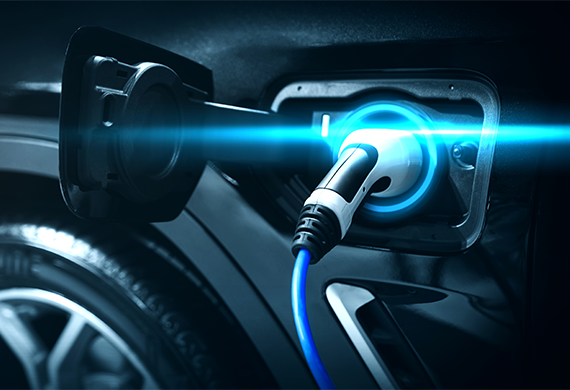The Future of Electric Vehicles: Business Strategies to Utilise as the Government Starts a New Era
The UK government’s ban on the sale of new diesel and petrol cars will be in effect from 2030. The sale of hybrids will follow with a ban on these effective from 2035.
These laws signal the future of electric vehicles in the UK.
And for businesses, it marks the start of a new era—one where you must make the transition to EVs (electric vehicles). You can begin this process now, as it is a move that will save you money and future-proof your organisation for decades to come.
The UK government’s 10-point plan for the future of electric vehicles
Published in November 2020, the government’s Ten Point Plan for a Green Industrial Revolution marked the start of the EV revolution. Point four is accelerating the shift to zero emission vehicles and states:
“We must take advantage of the once in a generation opportunity to build a world-leading EV supply chain here in the UK and improve air quality in our towns and cities. We have committed up to £1 billion to support the electrification of UK vehicles and their supply chains, including developing ‘Gigafactories’ in the UK to produce the batteries needed at scale.”
For businesses who make the shift now, it is an opportunity to get ahead of the curve, make a statement in your industry and save on overheads. EVs are:
- Cheaper to run than traditional diesel and petrol vehicles for many businesses.
- Free from emission charges in Clean Air Zones (CAZ) and Ultra-Low Emission Zones (ULEZ).
- Great tools for helping your business meet it’s Environmental, Social and Governance (ESG) goals.
The good news is you can make the transition immediately. The future of electric vehicles is yours to embrace, and the early movers will reap the benefits faster than late adopters.
How to make the business transition to EV
The transition to EV is much easier for businesses than you might think. Below is a five-step plan to follow.
1. Select the right electric vehicles for your business
Ensure you choose an EV suitable for your business. If you operate a fleet, it must meet your payload requirements and the needs of your drivers.
Consider what is available on the UK market. There are industry-leading names manufacturing cutting-edge electric vehicles, including Mercedes, Ford and Renault.
Any of these models will be a welcome addition to a business or fleet as they are reliable and capable of matching your needs.
2. Consider your business’ overheads
Mitigate the costs of transitioning to EV by choosing to hire an electric vehicle.
This is a much more cost-effective solution than an outright purchase (although the cost of buying an EV will lower over time), as you get a new and top-quality EV for affordable rates. And you can hire it for short or long-term requirements.
3. Train your drivers
You can even offer a training period for drivers, which can educate them on the following:
- Differences between EVs and other vehicles.
- Correct battery charging practices.
- How to preserve battery and manage potential range anxiety.
In terms of drivability, there is very little difference between an EV and a traditional vehicle. However, introducing best practices will help prevent any damage or depreciation to the EV.
4. Apply for EV charge cards and install charge points
You can begin the process of setting up EV charge cards and charge points for your business and employees, and this is how they work:
- Charge cards: You can use these at charging stations across the UK. Each provider has a different network, but it offers the chance to recharge an EV at destinations across the UK.
- Charge points: These can be installed at home or on your business premises. Your employees can then recharge their EV at suitable times, ensuring they do not run out of battery at inopportune moments.
5. Utilise the government’s EV schemes
Complementing this initiative are several schemes from the UK government to encourage, and support, businesses like yours as the shift to EVs begins. These include:
- Plug-in Van Grant: This is a discount for vans that can drive with zero emissions, such as EVs. This grant is applied automatically to eligible vans. The grant covers 20% of the cost of the vehicle up to £8,000.
- EV Infrastructure Grant: Covers up to 75% of the costs of buying and installing charge points. This can amount to £850 per unit. You must meet the eligibility criteria for this scheme and can apply for free online. There’s a maximum limit of £15,000 per grant.
These are regulated by the Office for Zero Emission Vehicles (OZEV), and you can find out more here: Grant schemes for EV charging infrastructure.
Make the transition, benefit as a business
You can make this an affordable and innovative leap for your organisation, beating the competition to benefit from new technology that will become the norm for decades to come.
And with the government’s upcoming laws and the latest incentives to help ease the transition, you have every reason to start your journey now.
If you’d like any help or advice, our expert team are on hand. Get in touch here.


